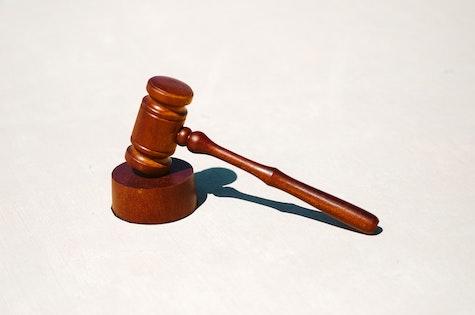If you or your loved one is charged with a federal criminal charge, your brain might be going through a rush of emotions. Fear and high anxiety are generally the first thoughts that cross the accused person’s mind. Whether you are faced with a low-level misdemeanor or a high-level felony, the defendant can’t control the influx of negative emotions. You might end up doing something that can worsen the situation.
Remember, you are accused of a crime. It’s a sensitive issue that must be dealt with patience and proper legal guidance. While consulting an attorney always helps, there are some other steps as well that you must take to ease the burden of suffering from an uncertain situation while being careful. Read on to learn five steps you can take when faced with a criminal charge.
#1 Stay Calm & Learn About the Charges You’re Facing
Facing criminal charges can be a terrifying experience for a person. Instead of taking all the pressure and filling your body with anxiety and fear, the key is to stay calm and analyze your situation. Understand your case and learn about the charges you’ve been accused with. Each state has its own set of rules for processing criminal processes.
You can check the federal rules for different cases in the Federal Rules of Criminal Procedure, which majorly governs criminal trials. To understand the charges better, you can consult a criminal lawyer who has experience in handling similar cases.
#2 Right to Remain Silent
Regardless of the type of federal charges you are facing, it’s in the best interest of the accused person to exercise their right to remain silent. And especially if you’re involved in a false criminal charge. In criminal law, the right to remain silent comes from the Fifth Amendment to the U.S. Constitution. Under this law, the government protects all citizens from self-incrimination. Simply put, as a criminal suspect, no authoritative body can compel you to reveal any information that might show your involvement in a criminal case.
You can refuse to answer any questions or indulge in interrogations with federal investigators without your lawyer. If you make any statements in front of the federal government, you can end up incriminating yourself and make the case even worse.
#3 Contact a Criminal Defense Attorney
Over the years, the U.S. government has implied strict laws and regulations when it comes to handling criminal cases. The country has the highest incarceration rate in the world, and the government is aggressively prosecuting federal charges and imposing heavy penalties on convicted offenders. Hence, it’s imperative to have an experienced criminal defense attorney by your side who has handled similar criminal cases and can make a strong defense strategy to get you out of the rut.
In some federal cases, the government might investigate the suspect participant’s criminal activity for months before filing charges, which could be pretty risky. Having a defense lawyer can take care of these things as they have different connections within their industry, which can help you avoid negative consequences.
#4 Collect Relevant Evidence
As soon as you’re accused of a criminal charge, instead of panicking, you should strive hard to collect all the relevant evidence related to your case. Write down things linked with your case and dates, and save your call history and messages for the future, as they might help you defend yourself. Working with a lawyer here will yield you the best results. Keep informing them about each and everything that might help with the defense and rest; your lawyer will get into the details for you.
#5 Prepare Yourself for a Plea Bargain
If you’ve been charged with a crime, make sure to prepare yourself for a plea bargain. It’s an arrangement between the prosecutor and the defendant to negotiate the current charges if the defendant pleads guilty. A plea bargain can reduce time and cost for the defendant and the court while the defendant can avoid the risk of a longer sentence. Your lawyer might also recommend you accept the plea bargain to avoid harsher penalties that the court would impose. If the defendant doesn’t agree to the plea bargain, the case will go to trial, and the sole decision will be of the jury.
The Bottom Line
Being charged with any sort of crime can be a traumatic experience for the accused person. And facing criminal charges against the federal government can particularly be an intimidating experience, especially for those with no knowledge and experience with the criminal justice system. Thus, having an experienced criminal defense lawyer is the best thing you can do for yourself. They will help you make a plan of action and be prepared for contingencies.















__small.png)










